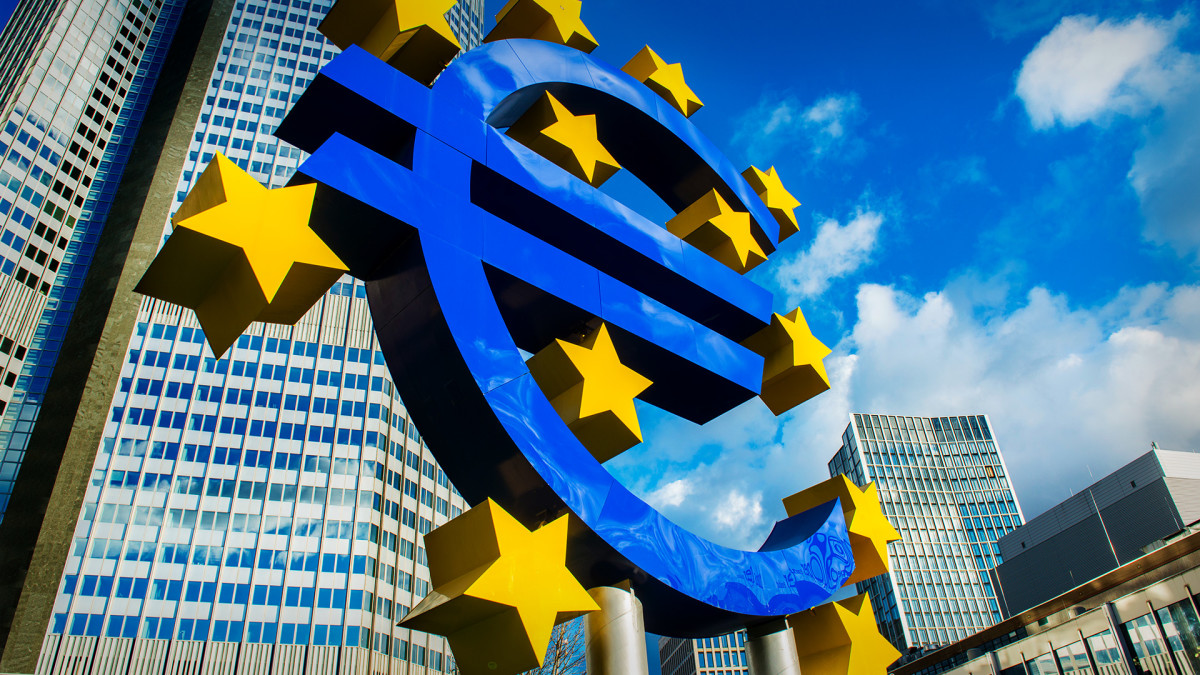
The European Central Bank lifted its benchmark deposit rate to an all-time high Thursday, extending its streak of increases to a tenth consecutive meeting, as stubborn inflation risks offset stagnant growth in the world's biggest economic bloc.
The ECB raised its deposit rate by a quarter of a percentage point, to 4%, marking the tenth consecutive increase that took the benchmark rate to the highest since the euro was launched in 1999.
The Governing Council’s past interest rate increases continue to be transmitted forcefully. Financing conditions have tightened further and are increasingly dampening demand, which is an important factor in bringing inflation back to target," the ECB said. "With the increasing impact of this tightening on domestic demand and the weakening international trade environment, ECB staff have lowered their economic growth projections significantly."
Analysts were split as to whether the ECB would hike, or opt for a pause in order to better assess the impact of tightening – as well as decisions from the Bank of England and the Federal Reserve – heading into the final months of the year.
The ECB also published fresh growth and inflation forecasts for the 20 nations that use the single currency, similar to the Fed's closely-tracked 'dot plots', as it looks to fading prospects in Germany and the impact of China's recent post-Covid lethargy .
The Bank sees GDP growth of 0.7% this year, and 1% in 2023, with inflation hovering at 5.6% this year before retreating to 2.1% in 2024.
The International Monetary Fund, in fact, cautioned in July that Germany, the region's biggest economy, would likely shrink 0.3% this year, marking the only G-7 nation that would slide into contraction.
The euro was marked at 1.0672 against the U.S. dollar heading following Thursday's rate decision, and has fallen nearly 5% since mid-July, even as details of its summer policy meeting suggested further rate hikes would be needed to tame the 5.3% inflation rate – which is more than double the central bank's 'just below 2% target – over the coming months.
"Whichever direction the ECB decides to take, the debate will likely be fiercer than in previous meetings, as lingering core inflationary pressure is being counterbalanced by evidence of rapidly worsening economic conditions in the euro area," said ING's foreign exchange strategists Francesco Pesole and Benjamin Schroeder.
"Accordingly, expect the overall messaging by the ECB to be influenced not only by the written communication but also by how much Lagarde manages to conceal growing division and disharmony within the Governing Council during the press conference and any post-meeting 'leaks' to the media, which could be used by dissenters to influence the market impact," the pair added.
Had the ECB opted for a pause, it could mark the end of a global rate-hiking cycle that began with the Fed in early 2022 and triggered some of the most aggressive policy tightening in major world economies in decades, thanks in part to post-Covid inflation pressures tied to supply chain disruptions and rising oil and energy prices linked to Russia's war on Ukraine.
- Action Alerts PLUS offers expert portfolio guidance to help you make informed investing decisions. Sign up now.







